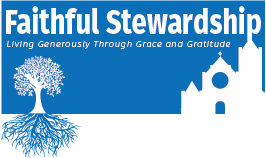We have a new, but old look at St. Andrew’s Cathedral; The Dean and Canons in purple cassocks.
A Cassock is typically a plain black ankle length robe with long sleeves. Technically the Cassock is a clerical “garment” and not a “vestment.” It is derived from the Greco-Roman Tunic, the name of which simply means "ankle length" in Latin. Cassocks are typically worn under vestments such as the full white vestment called a Surplice.
Both laity and clergy can wear the Cassock and it is often, but not always, tied around the waist with a Cincture, lay people that wear Cassocks are often Choristers, Lay Readers, and Vergers. For much of Church history until the 20th century the Cassock was the street wear / uniform of the clergy. These days Cassocks are almost exclusively used in a liturgical context.
Traditionally Anglican Cassocks are double breasted, buttoning on the shoulders and waist. Roman Catholic Cassocks typically have 33 buttons directly down the middle of the garment. An Anglican variant of the Roman Cassock exists with 39 buttons (reflecting the 39 Articles of Religion).
Bishops typically wear purple Cassocks. Cathedral Deans and Canons may wear purple cassocks also, signifying the unique relationship of the Cathedral and its clergy to the Bishop and Diocese. In some places, Cathedral clergy wear black cassocks with red piping, also indicating the relationship with the ministry of the Bishop.
The first two or three Deans of St. Andrew’s Cathedral wore purple cassocks, as we see in photographs and portraits. The practice for clergy was discontinued, although our Choir and Vergers still wear purple. When I arrived, I spoke with Bishop Seage about this tradition, and he welcomes a return to the practice of Cathedral clergy wearing purple cassocks, as an outward and visible sign of the unique relationship of the Cathedral with the ministry of the Bishop and Diocese. I already have a purple cassock from my service at other Cathedrals. With the help of the Memorials Committee, we have provided purple cassocks for the Cathedral Canons. We will wear them on a variety of occasions, especially during Evensong, non-Eucharistic services, and when hosting events at St. Andrew’s.
We hope this return to an older tradition will be well received and that the sight of purple cassocks will always be a reminder of the unique role this Cathedral church and its clergy have in the service of our Bishop in the Episcopal Church in Mississippi.
The Very Reverend Ronald D. Pogue
Interim Dean
St. Andrew’s Episcopal Cathedral
